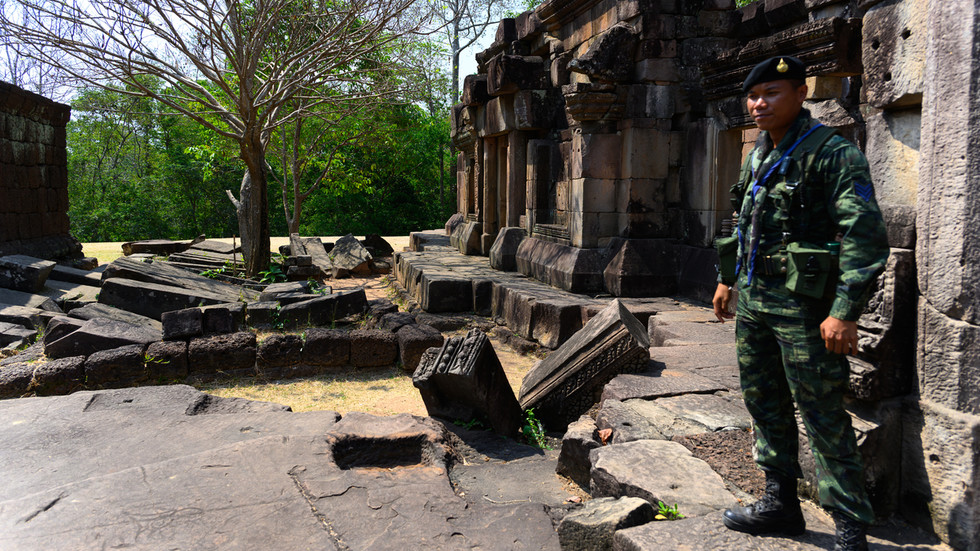Thailand and Cambodia have agreed to engage in ceasefire negotiations following heightened tensions along their disputed border, though clashes persisted hours after the announcements. The development comes amid pressure from former U.S. President Donald Trump, who publicly linked ongoing trade discussions with both nations to their willingness to halt hostilities.
The conflict, rooted in a century-old border dispute stemming from ambiguities in French colonial-era maps, escalated last week when five Thai soldiers were wounded by landmines in the contested zone. Thai authorities claimed the explosives were newly planted, triggering a skirmish that expanded into sustained cross-border exchanges. At least 34 people—including soldiers and civilians—have been killed, while tens of thousands fled their homes amid artillery fire and troop movements.
On Saturday, Trump declared on Truth Social that he had urged the leaders of both countries to pursue an “immediate ceasefire,” emphasizing that the U.S. would halt trade negotiations unless fighting ceased. “We do not want to make any Deal, with either Country, if they are fighting,” he wrote, later asserting that the nations had agreed to meet swiftly to broker peace. Cambodian Prime Minister Hun Manet confirmed on Sunday that his government accepted an “immediate and unconditional ceasefire,” citing assurances from Trump that Thailand had made similar commitments.
Thailand’s Foreign Ministry acknowledged “in principle” support for the proposal after Acting Prime Minister Phumtham Wechayachai’s discussion with Trump but stressed the need for “genuine commitment from Cambodia.” Hours later, however, renewed clashes erupted. Cambodia accused Thai forces of a “large-scale incursion” involving tanks and artillery, while Bangkok countered that its neighbor had acted in “bad faith” and violated humanitarian norms.
Malaysia has stepped in to mediate, with Foreign Minister Mohamad Hasan announcing that representatives from both sides will convene in Kuala Lumpur on Monday. The talks aim to address longstanding territorial ambiguities and stabilize the region, though skepticism remains given the rapid breakdown of prior commitments.
Analysts note that the disputed border—a vestige of incomplete colonial demarcation—has fueled sporadic violence for decades, complicating diplomatic resolutions. The latest escalation underscores the fragility of ceasefire pledges amid deep-seated mistrust and the high-stakes interplay of geopolitics and commerce. As displaced civilians await respite, international observers warn that sustained dialogue will require more than symbolic gestures to achieve lasting security.
